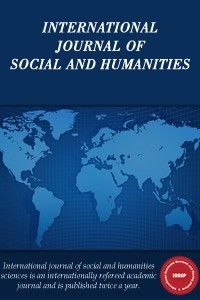
International Journal of Social And Humanities Sciences
Yazarlar: Ohene Agyemang OPOKU
Konular:Sosyal
Anahtar Kelimeler:Democracy,Elections,Democratization,Democratic Institutions,Consolidation
Özet: The third wave of democratization which hit the world led to a spontaneous wave of democratization in most African states in the early 1990s. The reinstatement of democratic governance brought hope and relief to most citizens. This is as a result of the promulgation and entrenching of human rights clauses in respective countries constitutions. There is now a clarion call for democracy to be consolidated. It is significant to mention that Ghana and Kenya have practiced democracy over two decades. The process of consolidating democracy has become necessary owing to pockets and mass violence in Ghanaian and Kenyan elections respectively. The use of minimalists’ conceptualization of measuring democracy based on elections must be discarded and give way to the maximalists approach. Dahl refers to this as the polyarchy of democracy. The study is placed within the liberal democratic theory by Dahl. The central question to ask is what roles have the judiciary played in consolidating the Ghanaian and Kenyan democracy from its inception? This is important to address this fundamental question in the new democracies like Ghana and Kenya because the more independent the judiciary and other democratic institutions, the higher the rate of democratic sustenance is guaranteed. This research is significant because the courts have been used as dispute resolution arena. It aims at investigating the role that courts have played to consolidate democracy. In 2012 Ghana’s opposition party leader went to the state’s Supreme Court to seek redress about electoral irregularities and malpractices. While the 2017 Kenyan elections dispute and irregularities were settled in the court. The study uses quantitative and qualitative data as its primary data source. Data from the Afro barometer survey is used. And published court rulings are used. Qualitative data via interviews of judges and political Parties officials.